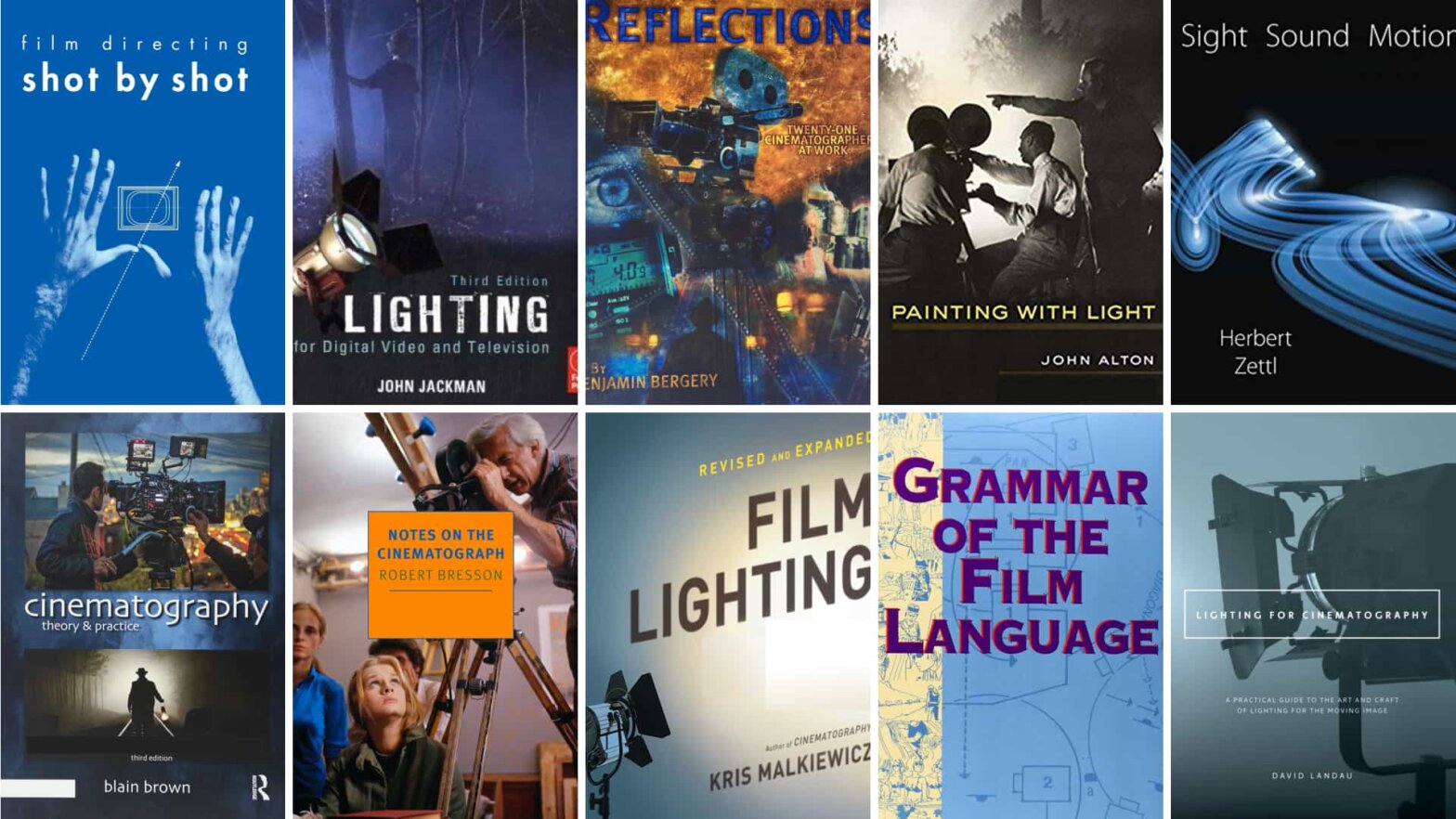There is no better teacher than doing. Learning as you go and surrounding yourself with filmmakers who are better than you is one of the best ways to learn the craft. However, many of the best cinematography books are actually worth taking a look at. In fact, some of them not only educate on craft, but they also provide a new way to see the world.
Top Picks
Best cinematography books
There are too many cinematography books on the market to sift through all of them, so we did it for you.
You might think that since the art of cinematography is visual, reading books on the subject would be counterintuitive. Certainly, you'd be able to learn a lot from watching movies shot by the best cinematographers.
On the other hand, you'd be missing out on cinematography tips like depth of field, aspect ratio, and the different types of lenses. Not to mention the plethora of film jargon and cinematography terms that become invaluable on a set.
Our list is randomized but each text has topics and insights that make them all essential reading for anyone wanting to know what cinematographers do.
BLain Brown
1. “Cinematography"
"Cinematography: Theory and Practice" by Blain Brown is a quick one but it's an awesome run down of the essentials. This is a great place to start, and not because it's elementary but because it just may end up as your handbook through the various stages of your career.
This text takes you through every consideration a DP has — from how lenses work and camera sensors to DIT workflow and file compression.
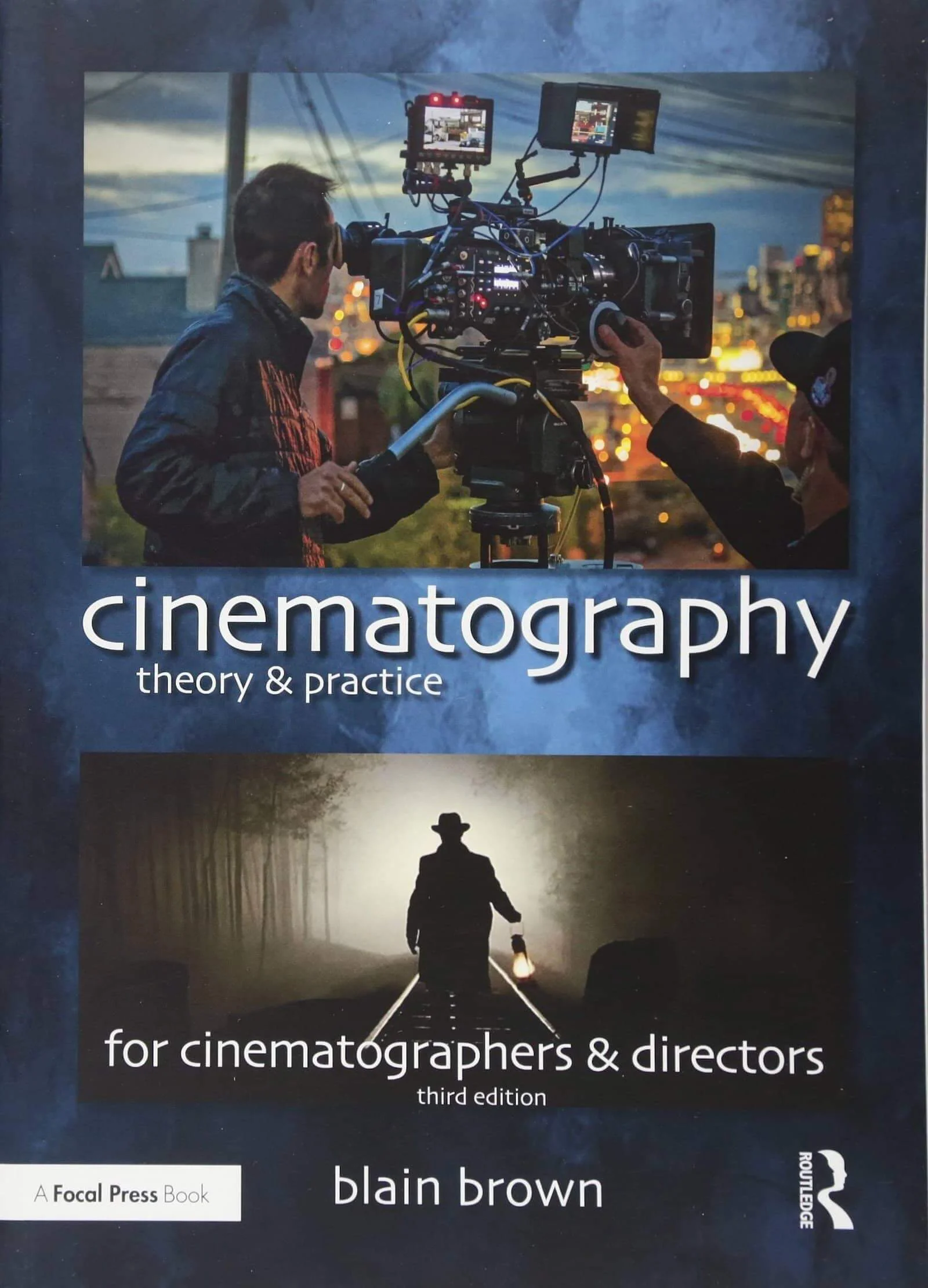
Gustavo Mercado
2. “The Filmmaker's Eye"
"The Filmmaker's Eye: Learning (and Breaking) the Rules of Cinematic Composition" by Gustavo Mercado combines practical instruction and conceptual knowledge. It is full of colorful examples and is a great reference guide to show how to become a visual storyteller.
The focus here is on shot size, camera framing and shot composition with particular attention to how a single frame tells a complete story.
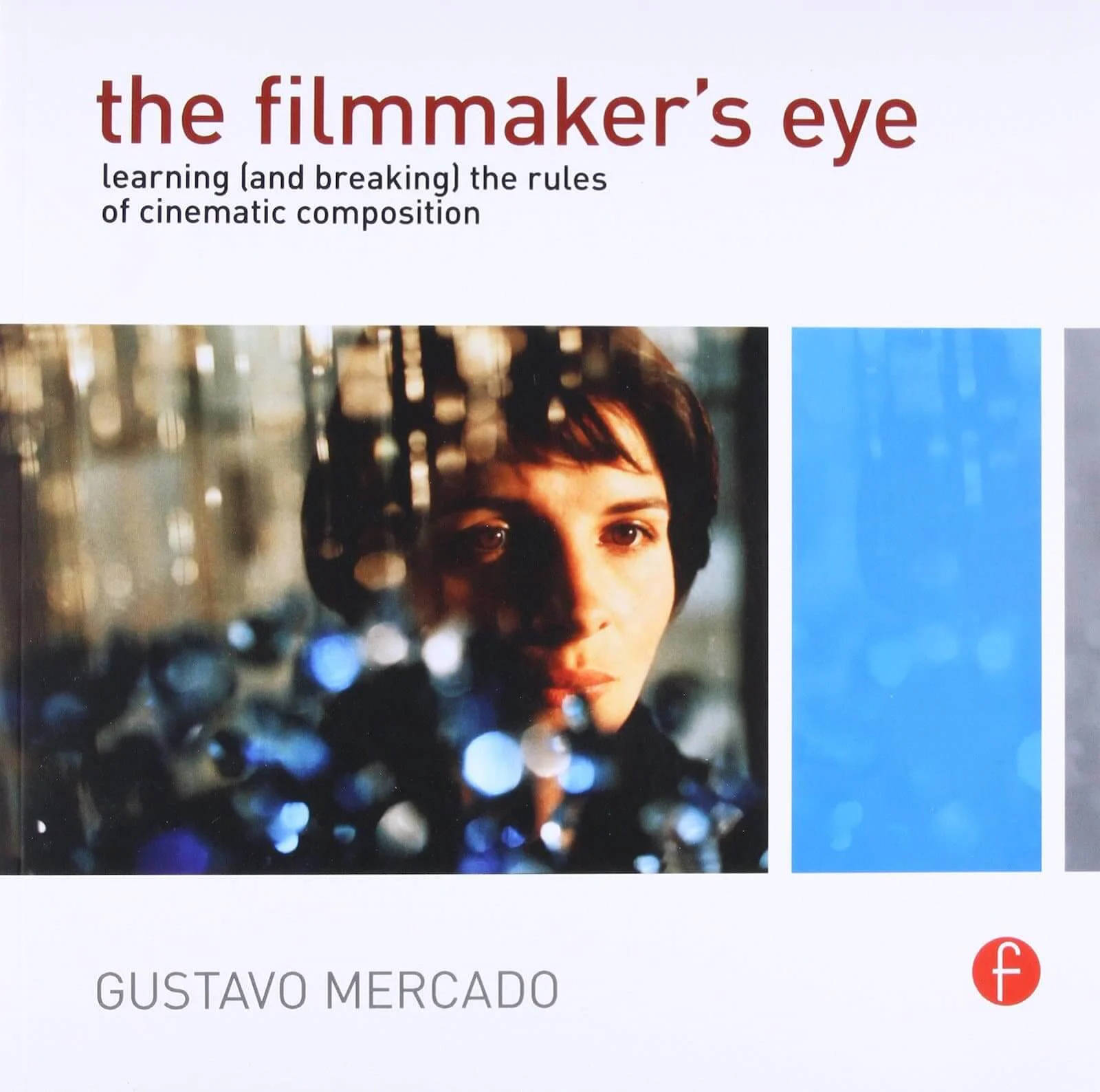
Herbert Zettl
3. “Sight Sound Motion"
"Sight Sound Motion: Applied Media Aesthetics" by Herbert Zettl is a comprehensive book describing the major aesthetic image elements — light and color, space, time-motion, and sound design — and also gives examples of how they're used in TV and film.
This book is great if you're looking for a deep dive into the minutiae of image making — from how light actually works to spatial dimensions in the frame.
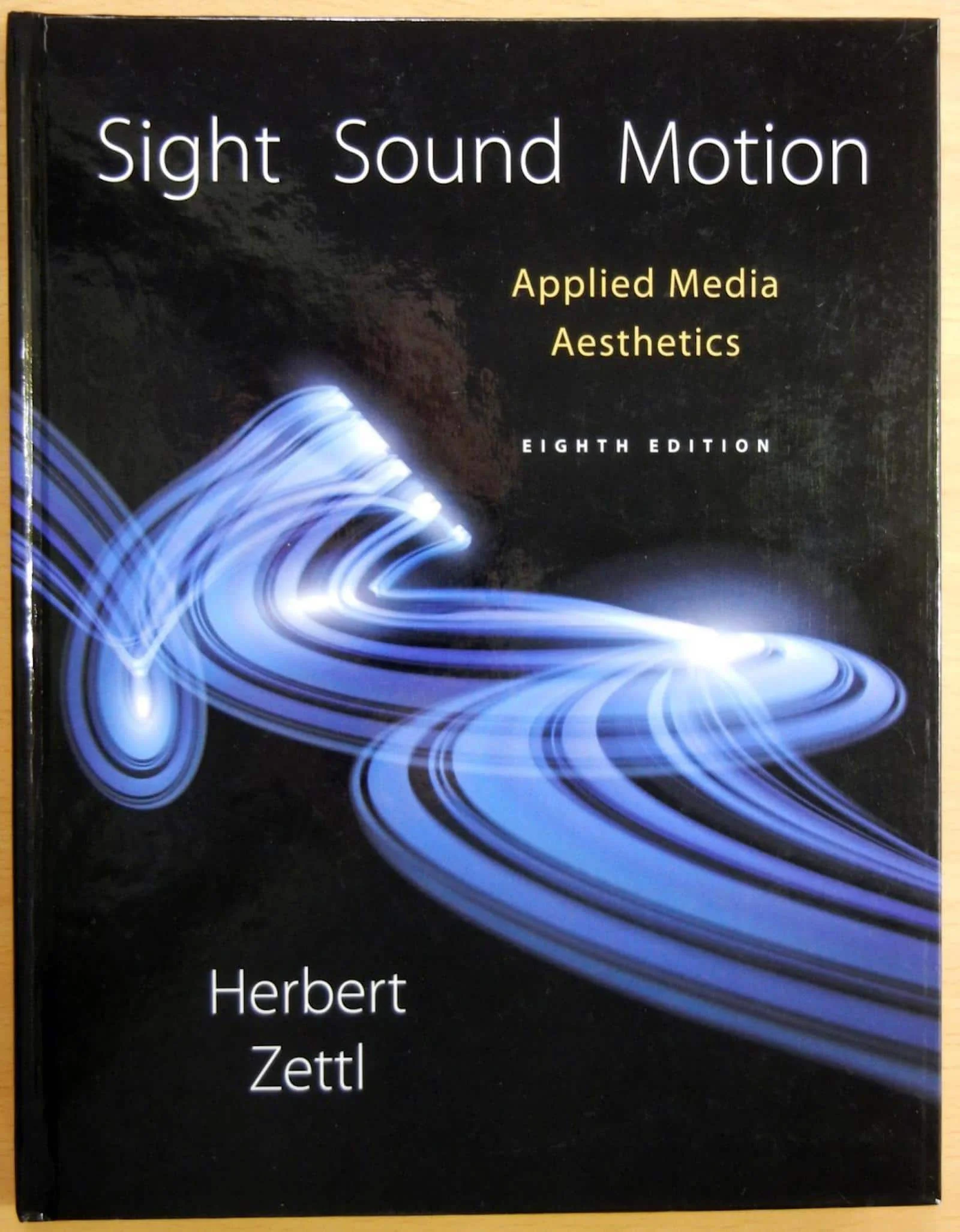
Benjamin Bergery
4. “Reflections"
"Reflections: Twenty-One Cinematographers at Work" by Benjamin Bergery is a great resource. Bergery's book doesn't just assume an academic perspective — he brings the ideas of working DPs in for a more hands-on approach.
Interview subjects include DP legends like Darius Khondji, Owen Roizman, and Jordan Cronenweth.
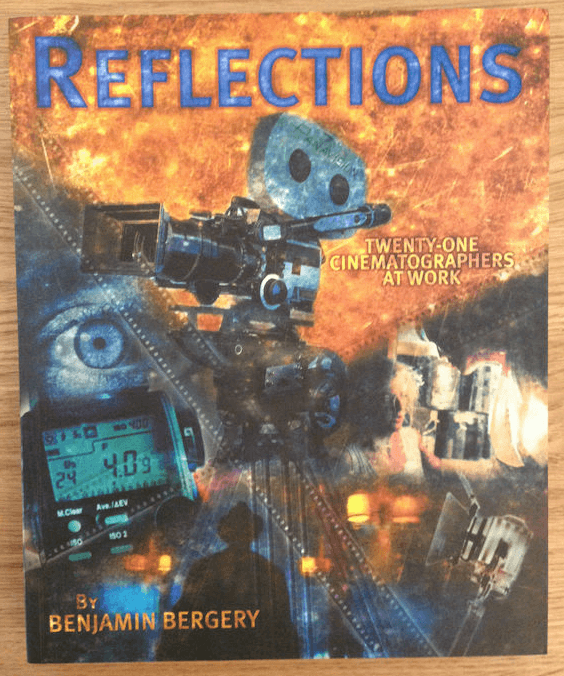
John Alton
5. “Painting with Light”
One of the first books on cinematography to be written by a cinematographer, "Painting with Light" by John Alton is a must-read. Alton worked decades ago in the studio system so the techniques might be old-fashioned but the man shot over 100 movies!
If you're curious how films were shot in the Golden Age of Hollywood or maybe you're looking to shoot something with that same look, this book is a perfect glimpse at the past.
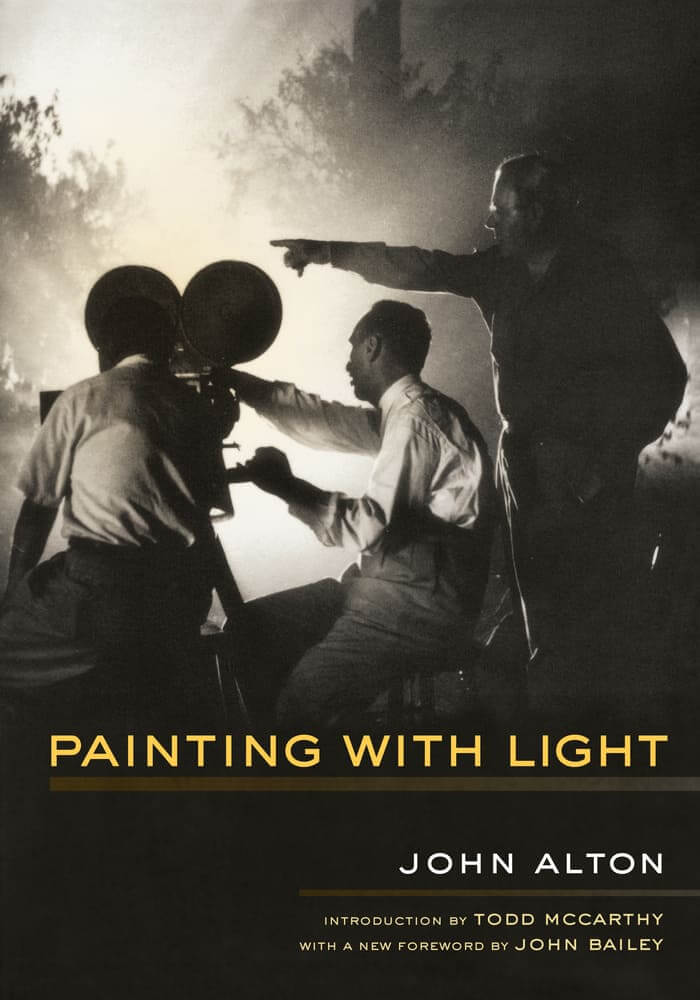
Vittorio Storaro
6. “Storaro: Writing with Light”
Vittorio Storaro, if you didn't know, is one of the greatest cinematographers of all time — and here he is discussing the craft in his own words. Five of his films were recently included by the ASC in their Top 100 Cinematography Films — 2 of which made the Top 10.
He's also a very forward-thinking cinematographer. His idea to create a universal 2:1 aspect ratio anticipated the ubiquity of streaming services. In other words, if you're going to study cinematography, this is a guy you probably want to pay attention to.
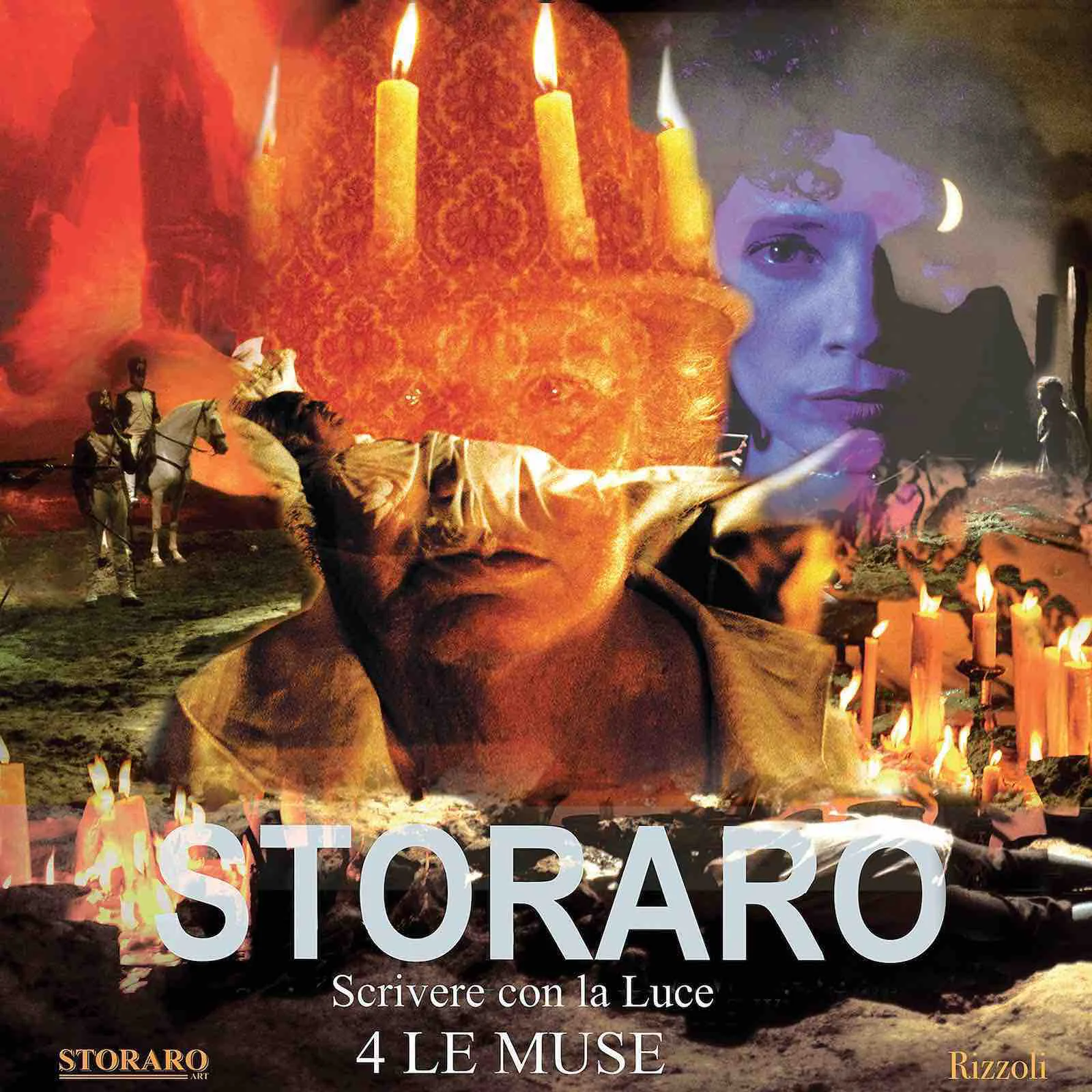
David Landau
7. “Lighting for Cinematography”
Written by a David Landau, a veteran cinematographer and gaffer, this essential text shows how to create lighting that supports the emotional moments of the scene.
Like the title says, this book is all about light — what it is, how it works, and how it can be shaped and sculpted. Or how it can be used to create dynamic contrast like chiaroscuro lighting. A fascinating read.
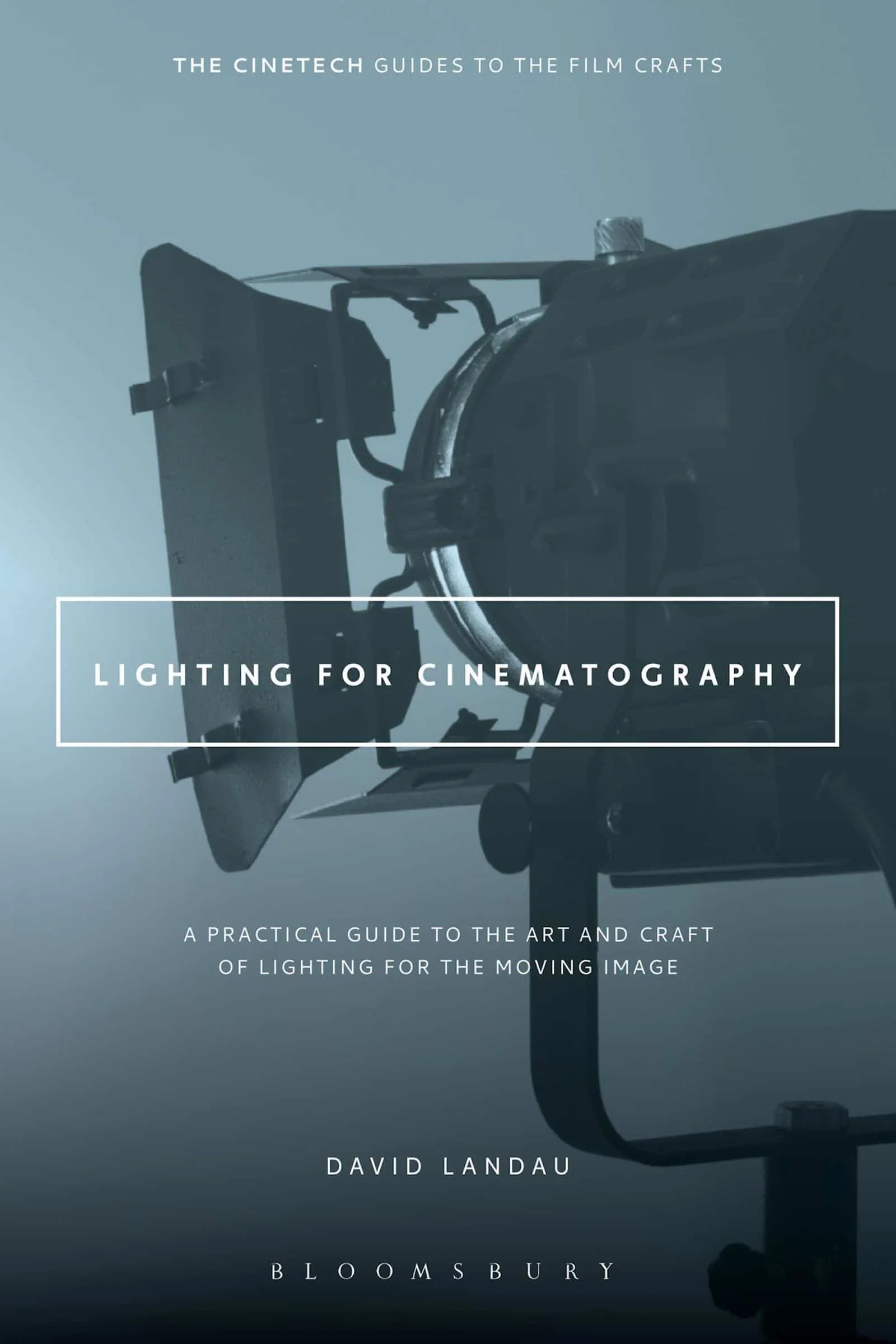
Joseph V. Mascelli
8. “The Five C’s of Cinematography"
"The Five C's of Cinematography: Motion Picture Filming Techniques" by Joseph V. Mascelli should be in every DP's back pocket. This book has hundreds of photos and diagrams, and clearly and concisely presents the main concepts and techniques of camerawork.
In case you were wondering, the 5 C's are camera angles, cutting, composition, close ups, and continuity.
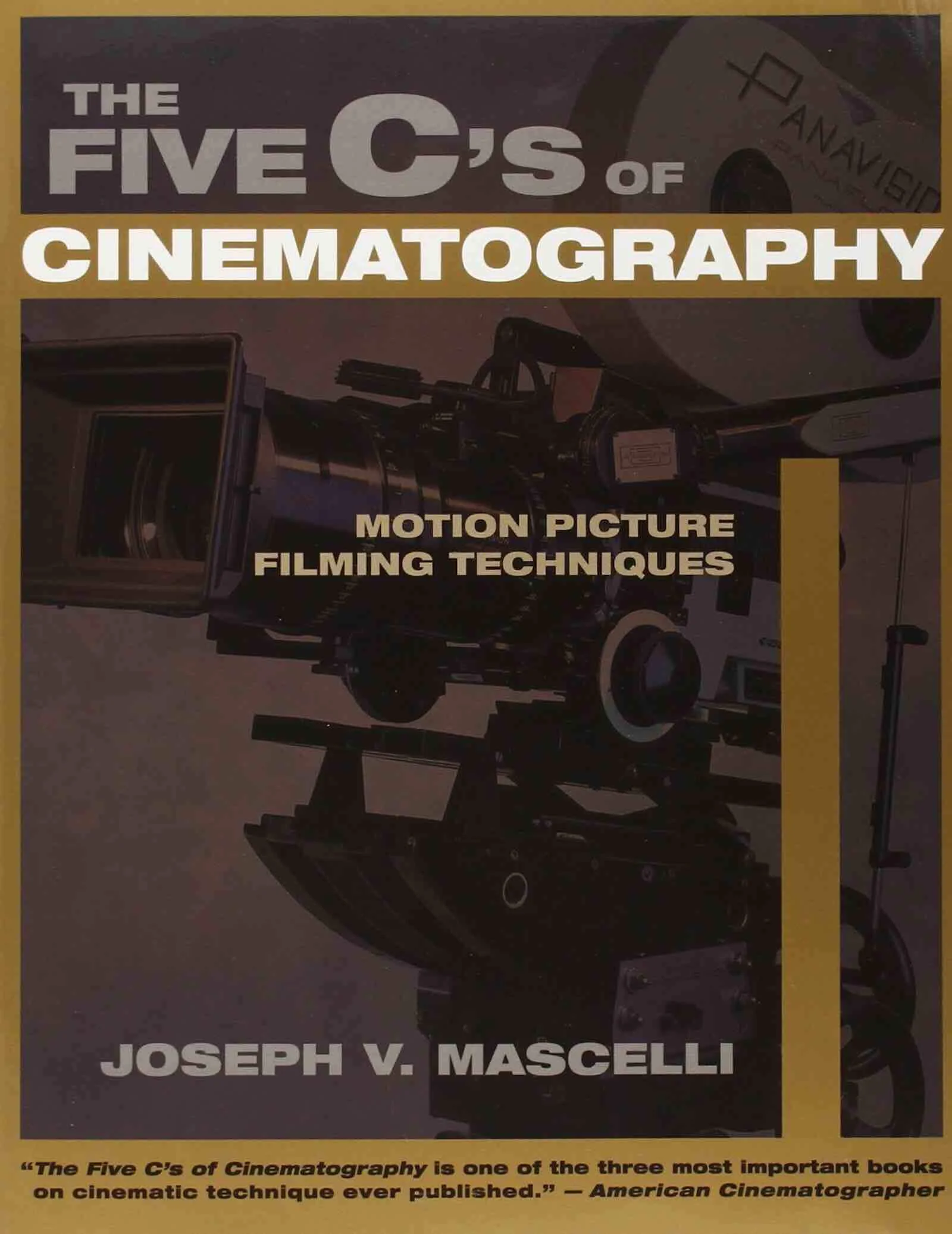
Malkiewicz & Mullen
9. “Cinematography: Third Edition”
Initially published in 1973, "Cinematography" by Kris Malkiewicz and M. David Mullen" is another classic. As the cover says, the latest edition has been updated for the 21st century and is still one of the best cinematography books.
It is a very craft-oriented manual with an overview of essential technical and creative considerations like frame rates and shutter speed.
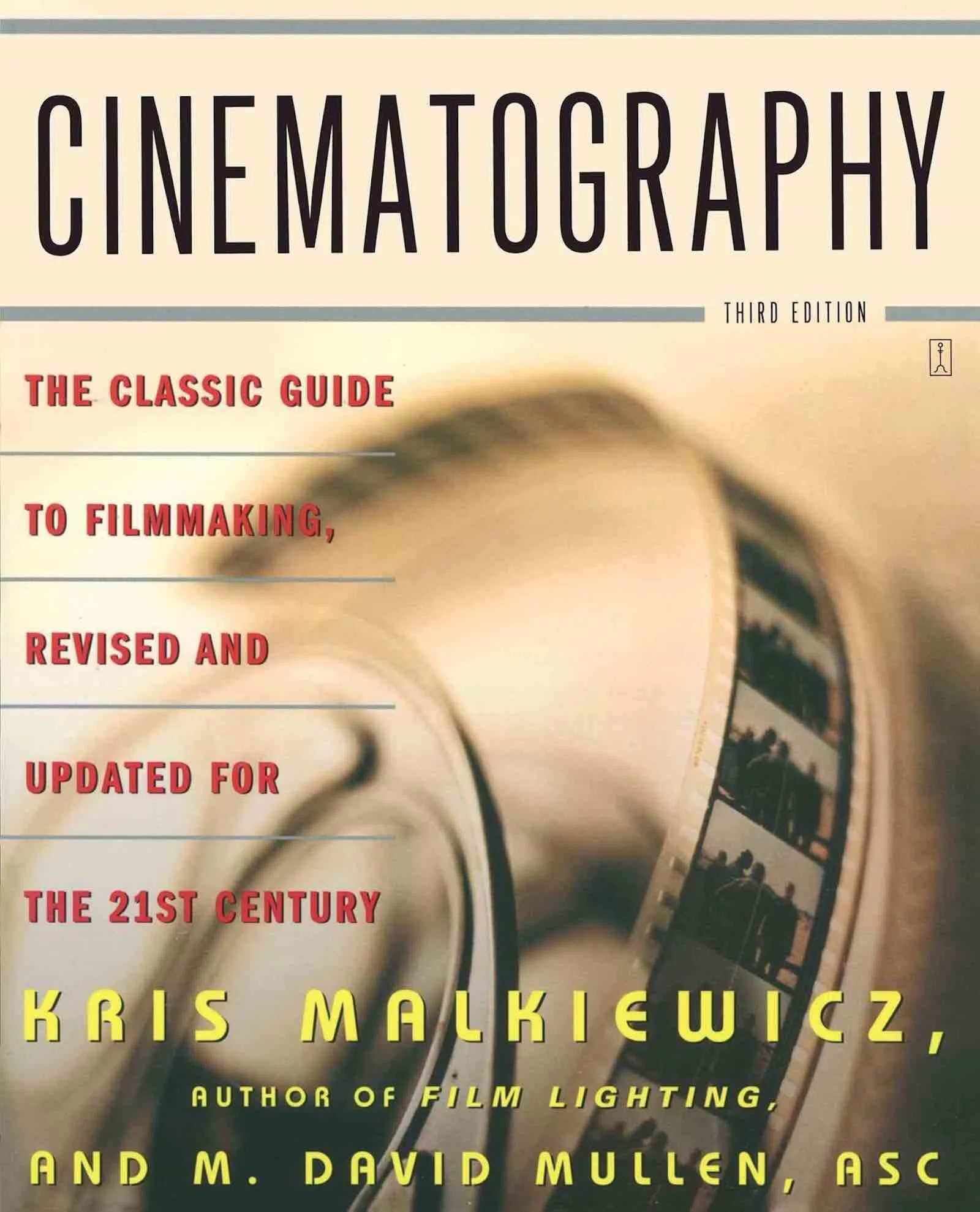
Robert Bresson
10. “Notes on the Cinematograph”
Written by the French film director, Robert Bresson, "Notes on the Cinematograph" is a delight for the student or admirer of his work. The French New Wave filmmakers often looked to Bresson for inspiration.
Bresson's take on cinematography is very serious and very French, with statements like "The point is not to direct someone, but to direct oneself." Musings like this are more inspirational than instructional but you gotta appreciate how much the French love cinema.
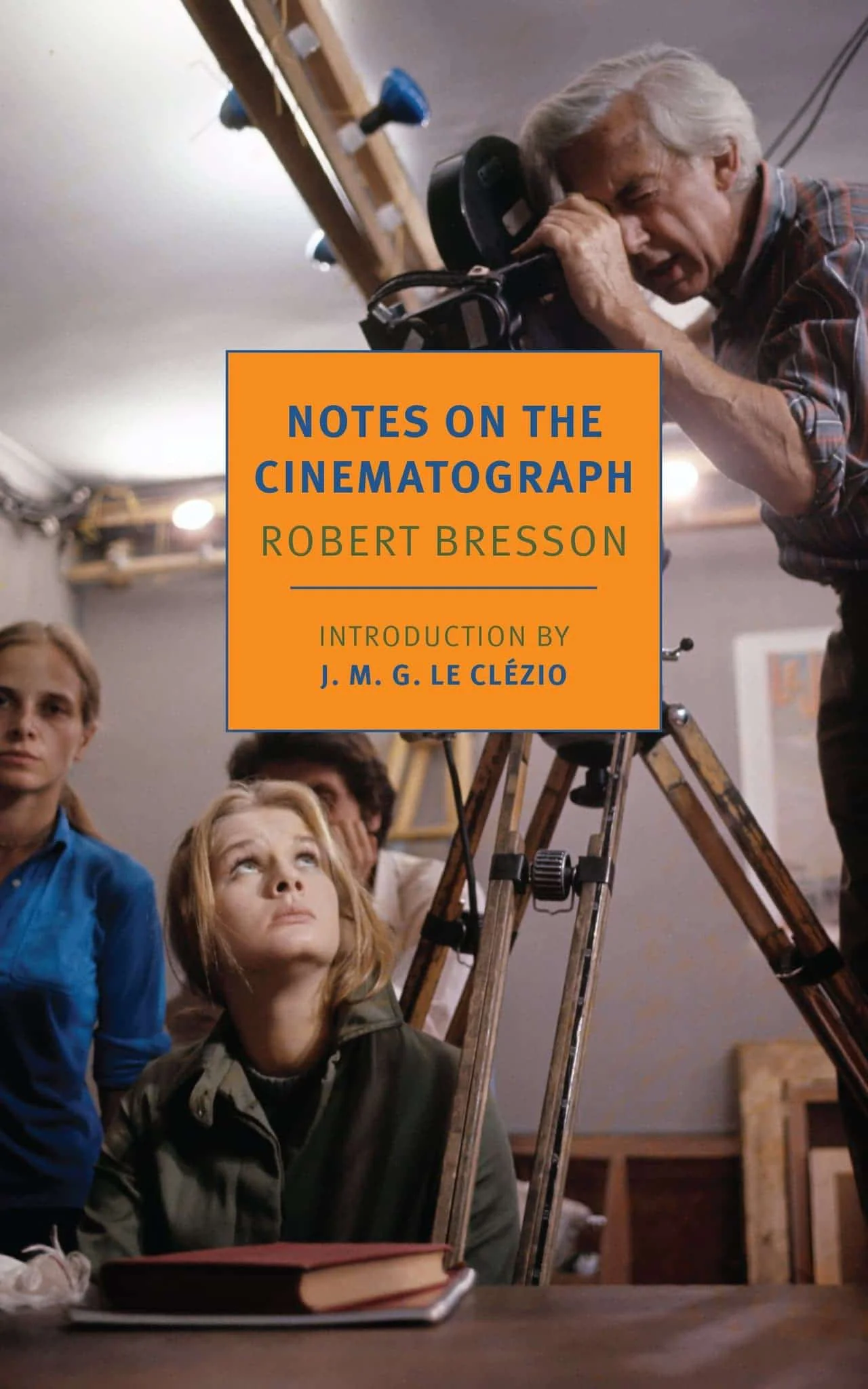
Daniel Arijon
11. “Grammar of the Film Language”
Daniel Arijon's book is a unique visual narrative guide. This language is basic to the very positioning and moving of players and cameras, as well as the sequencing and pacing of images.
Arijon covers the entire spectrum of film language, including editing, blocking and staging. Highly recommend.
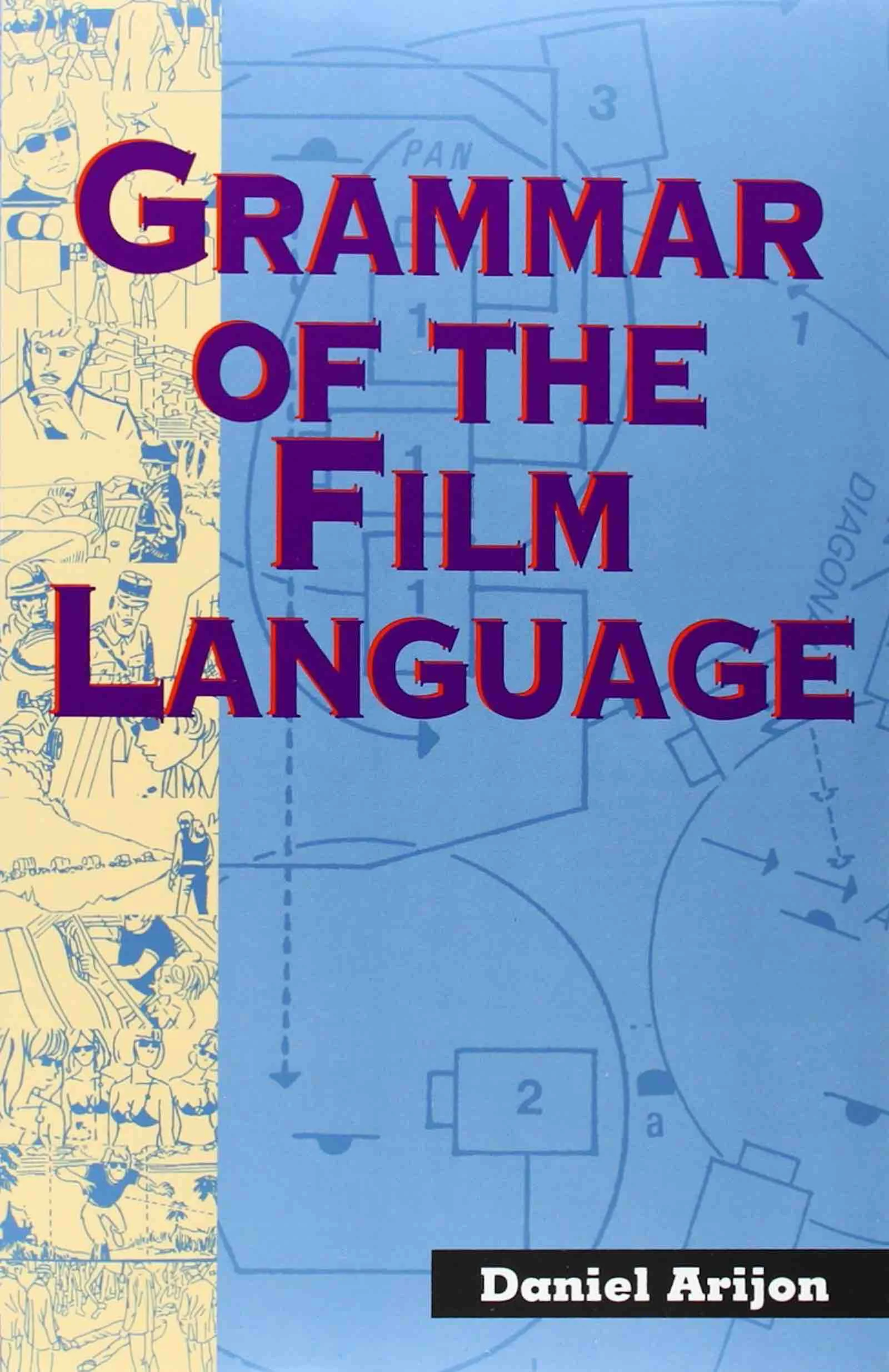
Steven D. Katz
12. “Film Directing Shot by Shot"
"Film Directing Shot by Shot: Visualizing from Concept to Screen" by Steven D. Katz is a staple in many of the best film schools. But it also includes a lot of cinematography techniques they don't teach. A very helpful book for cinematographers, directors, and even screenwriters.
The focus is translating the script into images with a special emphasis on continuity filmmaking and how to keep the illusion intact.
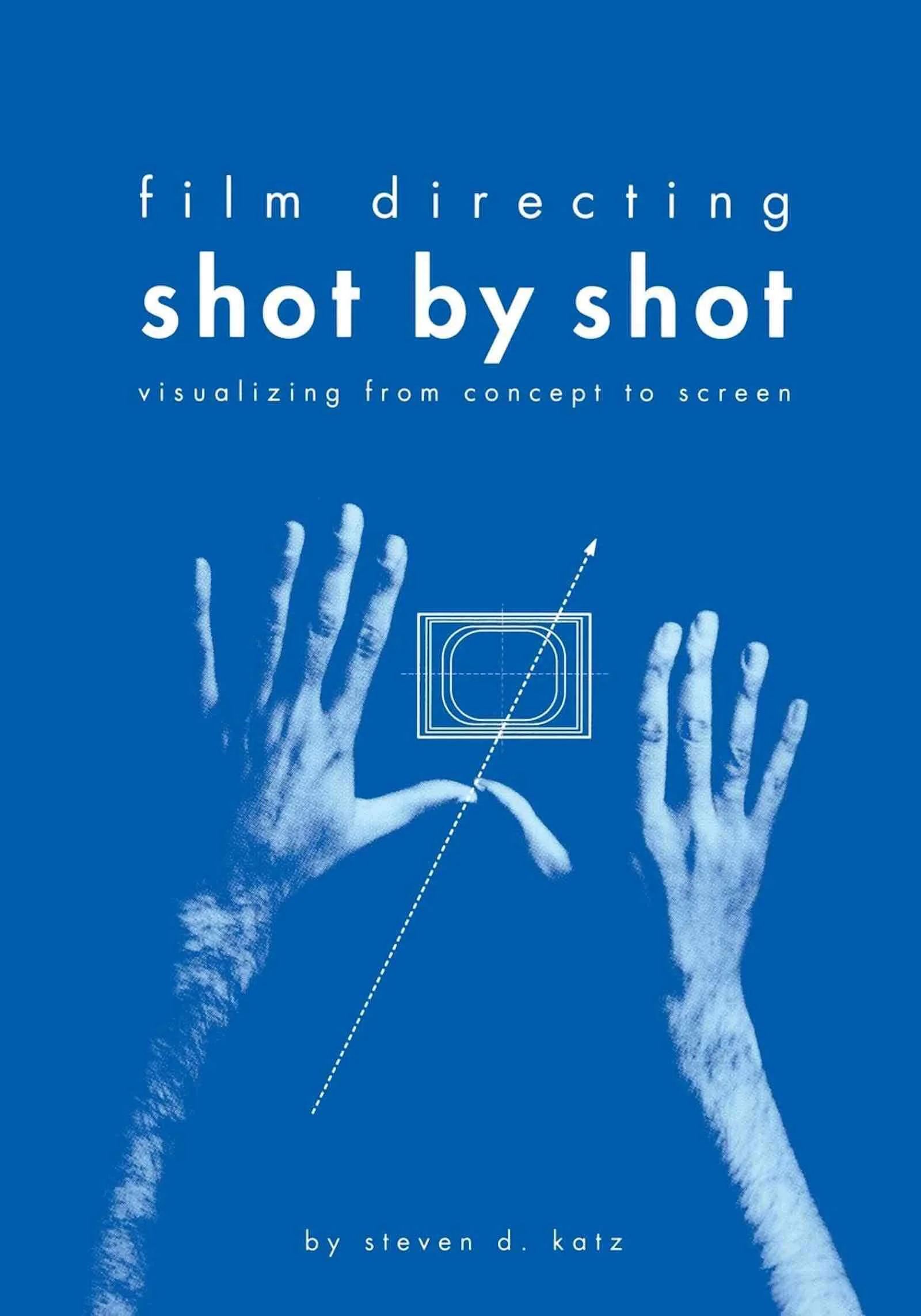
John Jackman
13. “Lighting for Digital Video and TV”
John Jackman's "Lighting for Digital Video and Television" is the new go-to for aspiring filmmakers. It's also helpful for professionals looking to up their skills in the contemporary market.
It does lean towards more commercial filmmaking (advertising, interviews, live events, etc.) but the value there is still applicable for any working DP.
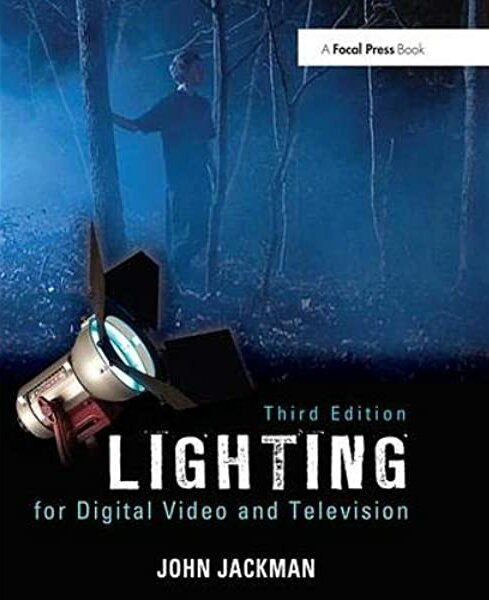
Kris Malkiewicz
14. “Film Lighting"
Another entry for Kris Malkiewicz, "Film Lighting: Talks with Hollywood's Cinematographers and Gaffers" is a fantastic resource. This book provides in-depth interviews with heavy-hitters like famed DPs Caleb Deschanel and Janusz Kaminski.
It's a very hands-on approach, including how to collaborate as a DP, a run down of lighting techniques, camera lens choice, and film grain, and more technical set-ups like split diopter shots.
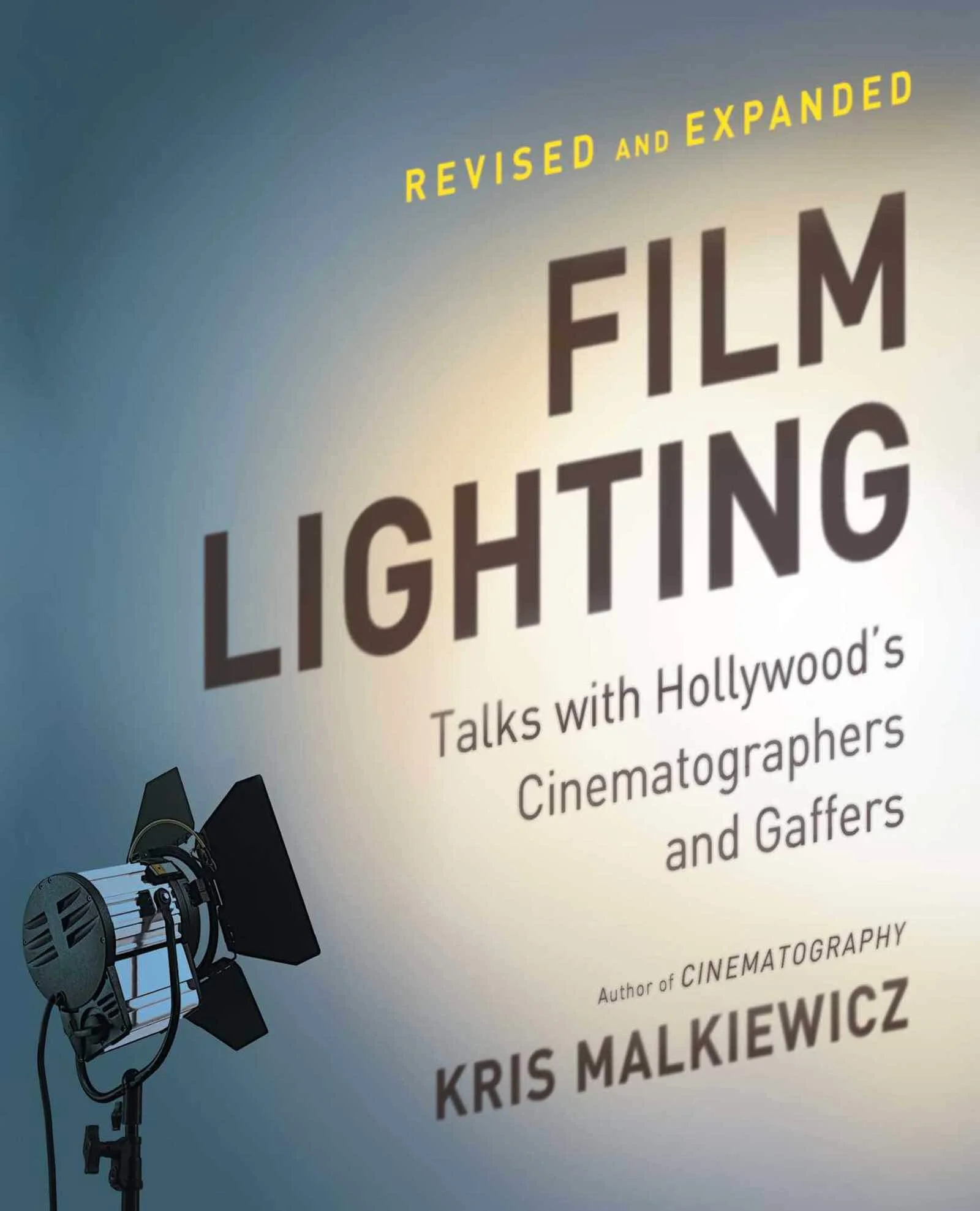
Christopher Kenworthy
15. “Master Shots Vol. 1, 2nd ed."
Christopher Kenworthy's Master Shots series is definitely worth your time. Volume 1 "100 Advanced Camera Techniques" gives filmmakers the techniques they need to execute complex shots on any budget.
Kenworthy gets very specific with how to shoot specific scenes (fight scenes, car chases, entrances/exits, etc.). The specificity of this book makes it a great supplementary text to the more general instruction provided by the other entries on this list.
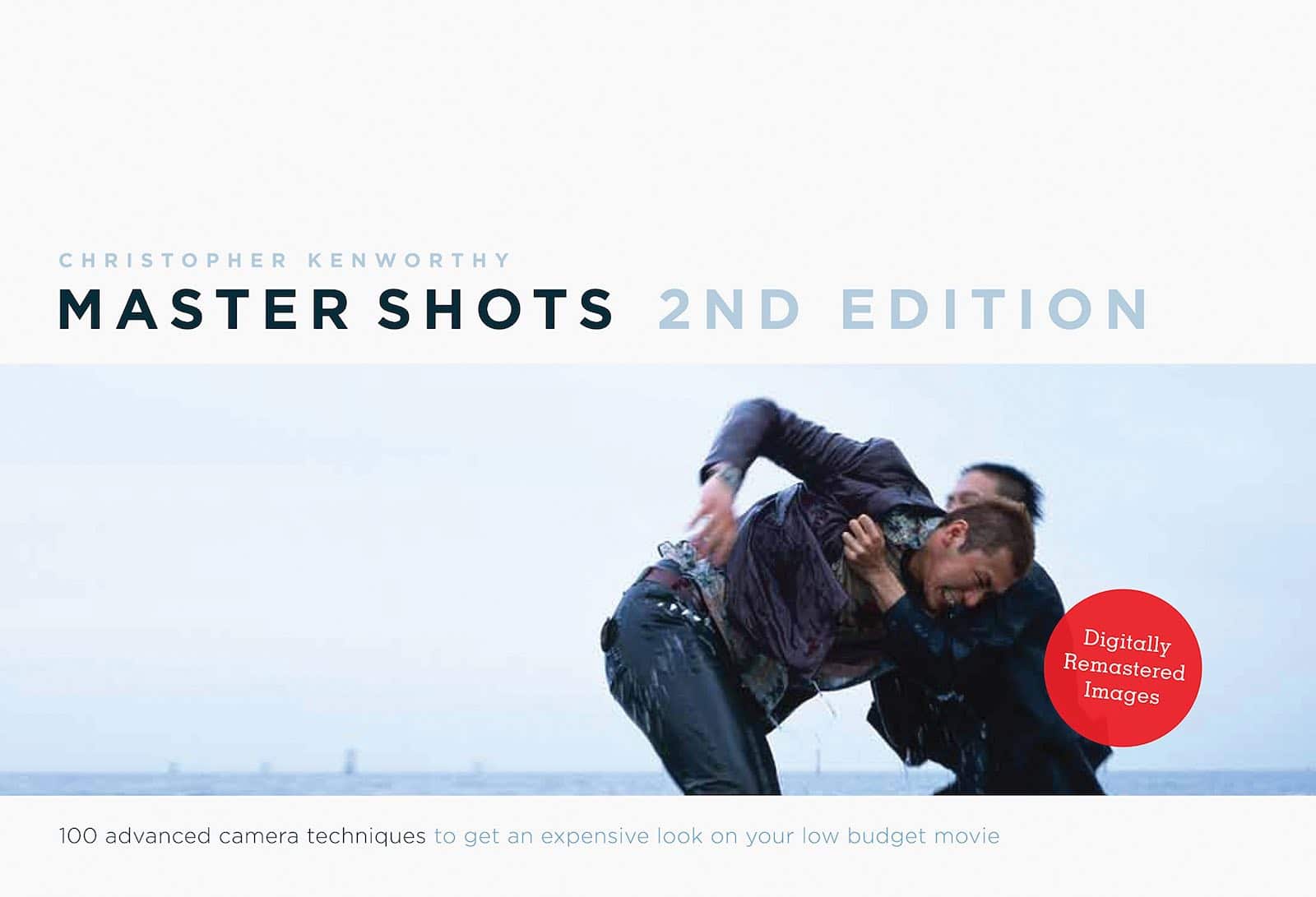
CHRISTOPHER KENWORTHY
16. “Master Shots Vol. 2”
Kenworthy's second installment "Volume 2: Shooting Great Dialogue Scenes" gives you 100 ways to shoot dialogue — the most common and least visual scenes of any movie. This volume is great for both directors and cinematographers.
Dialogue scenes can be vastly different from each other and this allows Kenworthy to cover them all (intimacy, power struggles, group scenes).
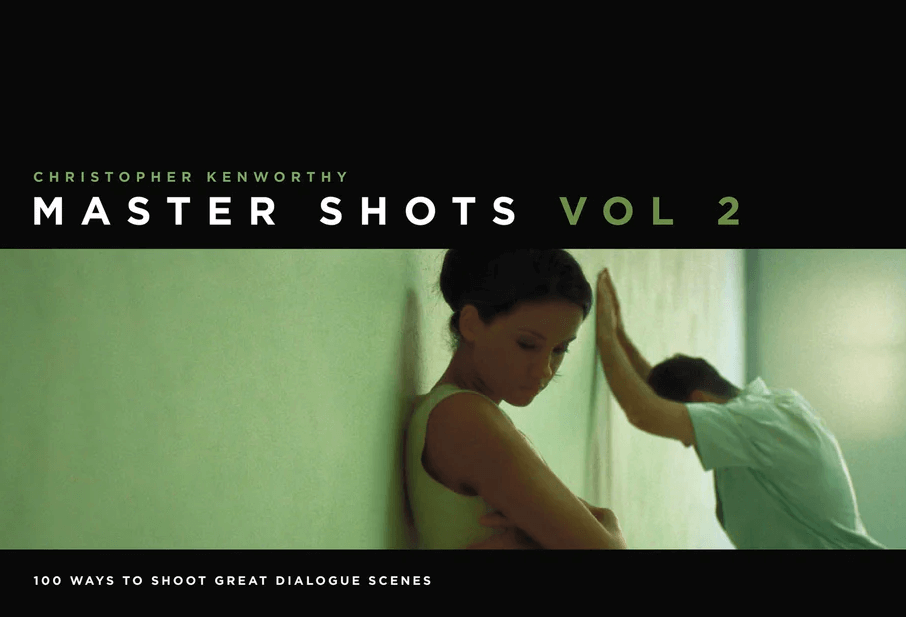
CHRISTOPHER KENWORTHY
17. “Master Shots Vol. 3”
Kenworthy's third installment "Volume 3: The Director's Vision: 100 Setups, Scenes and Moves for Your Breakthrough Movie" focuses on the various types of camera movement. From the standards like dolly shots and crossing the 180 degree line, to more advanced topics like a diagonal reveal and opposing slides.
If you've gotten as much out of the first two volumes in Kenworthy's series, Volume 3 is a must for cinematographers and directors.
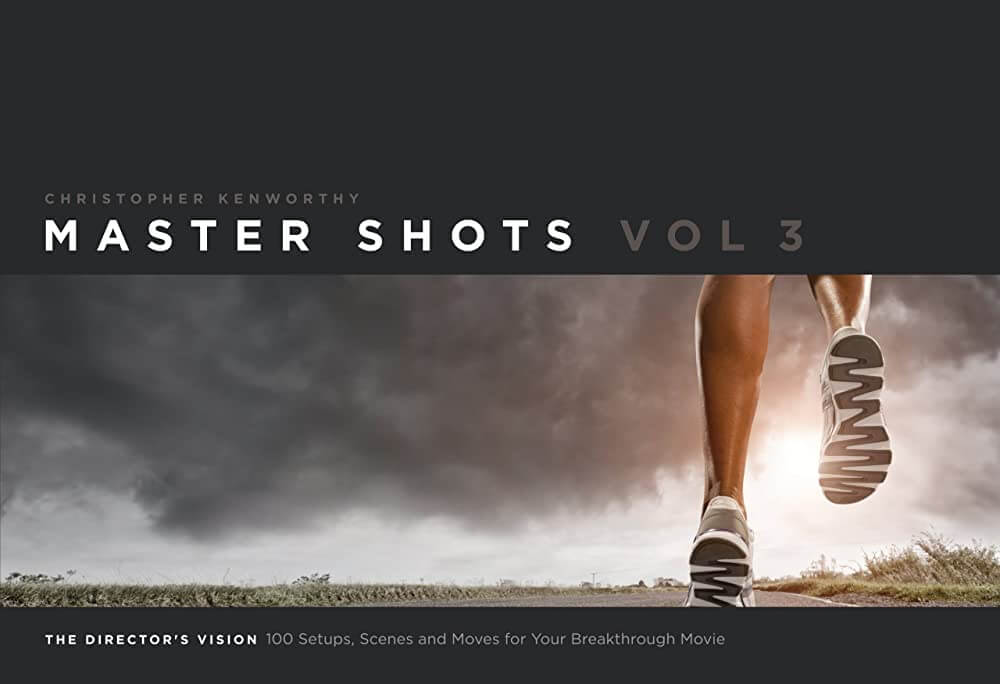
Morgan Sandler
18. “Visual Storytelling”
While many cinematography books focus on one area, Sandler's text goes straight for visual storytelling. All of the basic cinematography techniques are represented but it is the inclusion of topics like story structure that make this a must-read.
With elements like types of camera focus, guiding the viewer's eye, and shooting coverage, this text is a great overview for any visual storyteller.
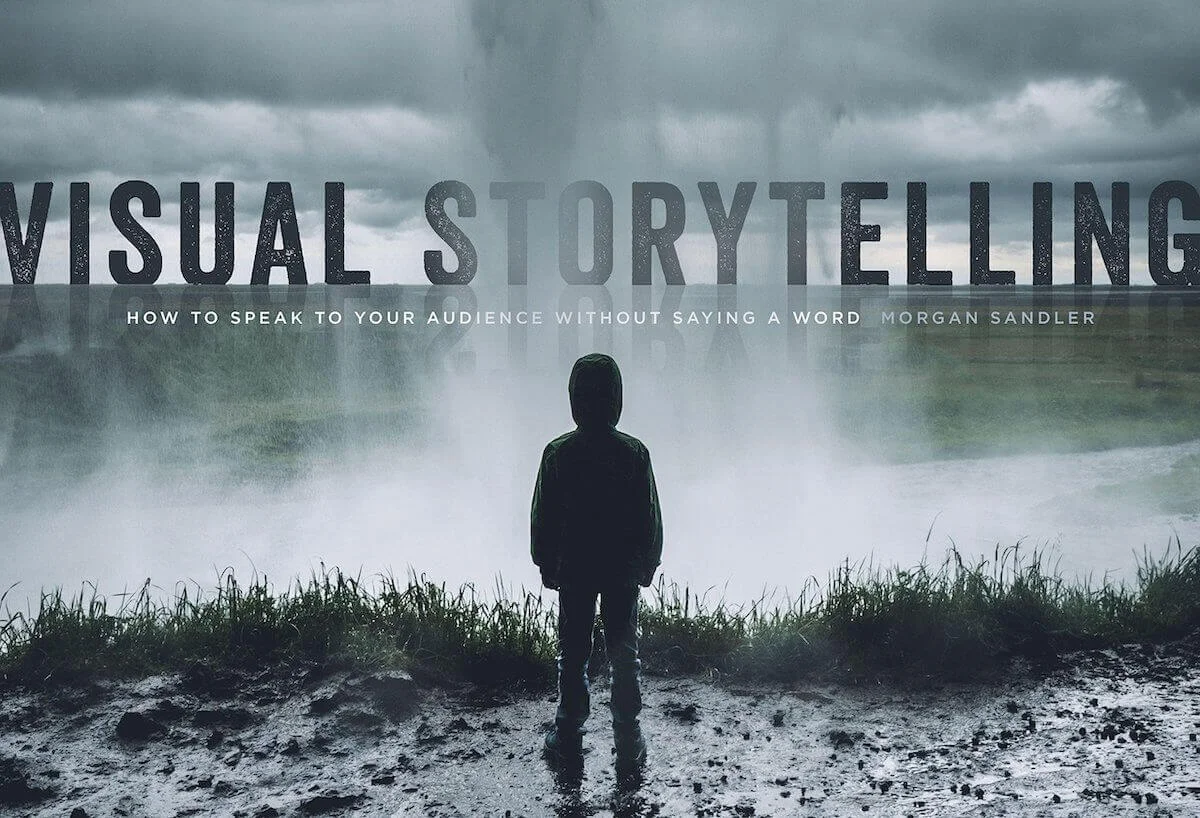
Schaefer & Salvato
19. “Masters of Light”
Like some of the other interview collections on this list, Dennis Schaefer and Larry Salvato's "Masters of Light: Conversations with Contemporary Cinematographers" doesn't disappoint. Although, since this was originally published in 1984, the "contemporary" part of the title is a bit misleading. Regardless, we still have interviews with masterclass DPs like Michael Chapman, Conrad Hall, Haskell Wexler, and Gordon Willis.
Truly, learning how Almendros shot the golden hour sequences in Terrence Malick's Days of Heaven is worth the price by itself.
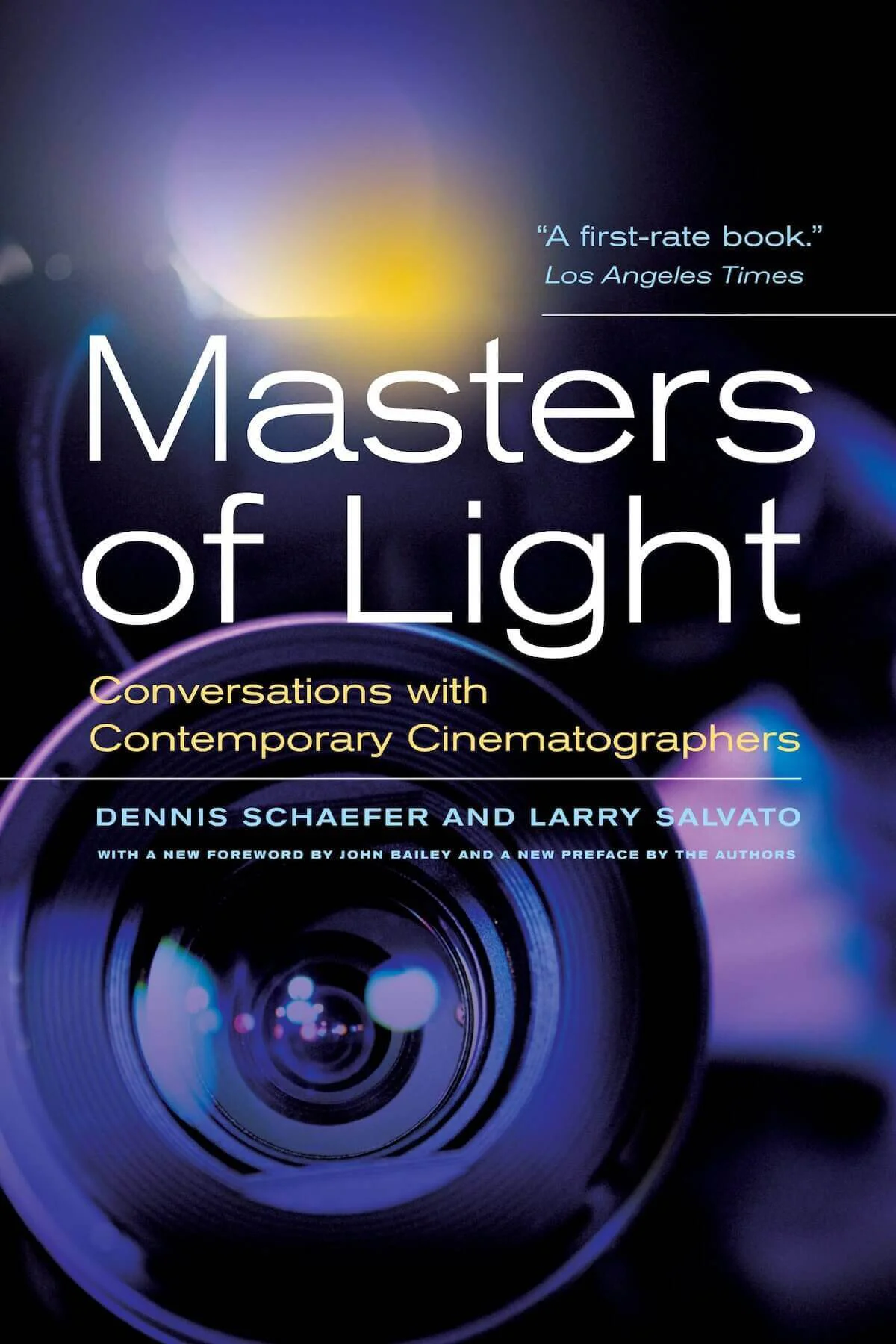
Todd Rainsberger
20. “James Wong Howe”
Sometimes, to truly appreciate the artist, you need to know their life as well as their work. Such is the case with Todd Rainsberger's "James Wong Howe, Cinematographer." It's out of print but if you can get your hands on a copy, do it. If you're unfamiliar with Howe's cinematography, do yourself a favor and watch classics like Hud, Sweet Smell of Success, and Seconds.
Howe was a pioneer in low-key lighting, and deep focus cinematography. And few other DPs truly mastered light and shadow like the late, great Howe. His story from the early silent days, working with DeMille, and his six decades in Hollywood is one every filmmaker should know.
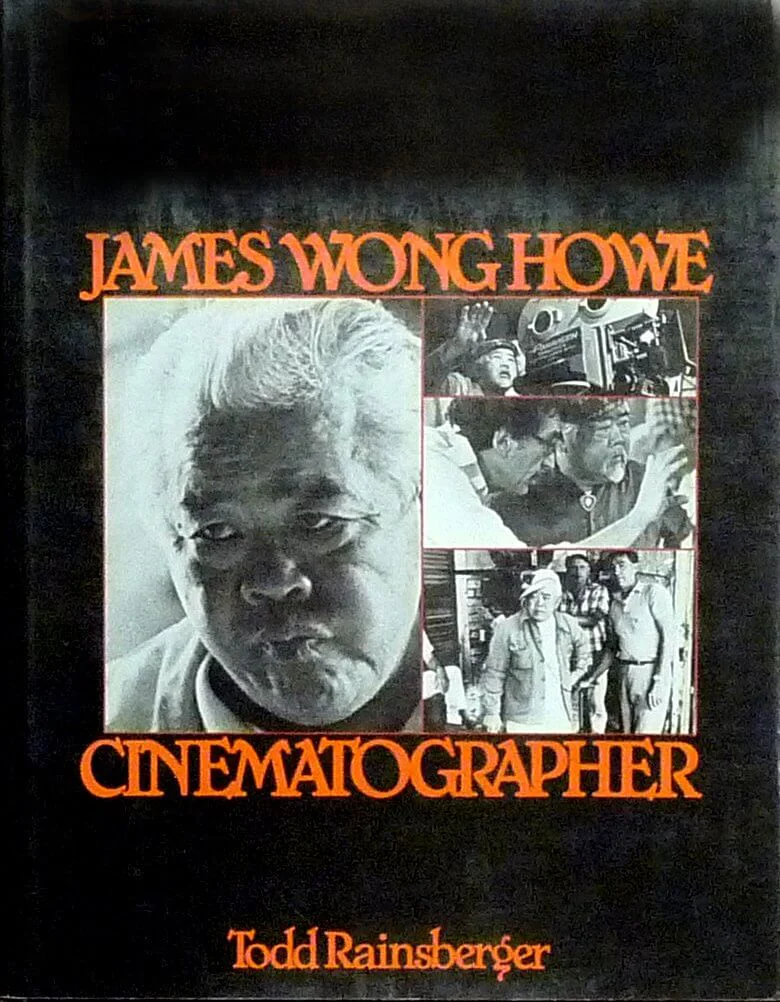
Tania Hoser
21. “Introduction to Cinematography”
Tania Hoser's "Introduction to Cinematography: Learning Through Practice" is a thorough and modern textbook covering all aspects of cinematography. Topics include technicals like camera rigs, DIT, and bit rates, and aesthetic considerations like bokeh, focal length, color theory.
Published in 2018, you'll get a firm grasp of what cinematography looks like in the 21st century. As art and technology continually feed one another, every DP should understand what's new and what's possible when they shoot.
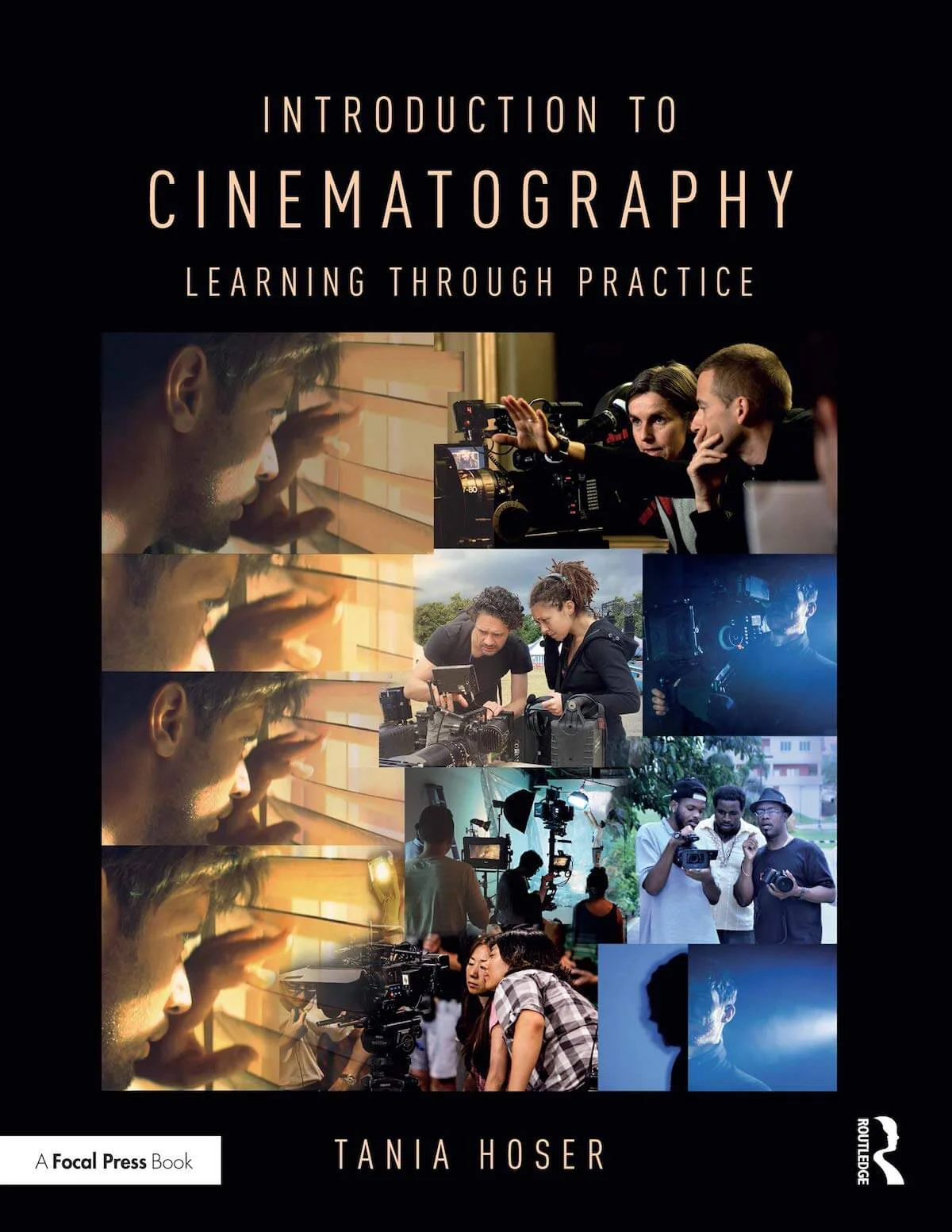
Steven Katz
22. “Film Directing: Cinematic Motion”
Steven Katz is back on the list with "Film Directing: Cinematic Motion, 2nd Ed." This volume takes on everything involved during the Pre-Production process, including storyboarding, shot listing, and even script breakdowns.
So much of the cinematographer's job is dependent on planning. If you can strategize and organize ahead of time, you'll have a fighting chance. This is one of the best cinematography books.
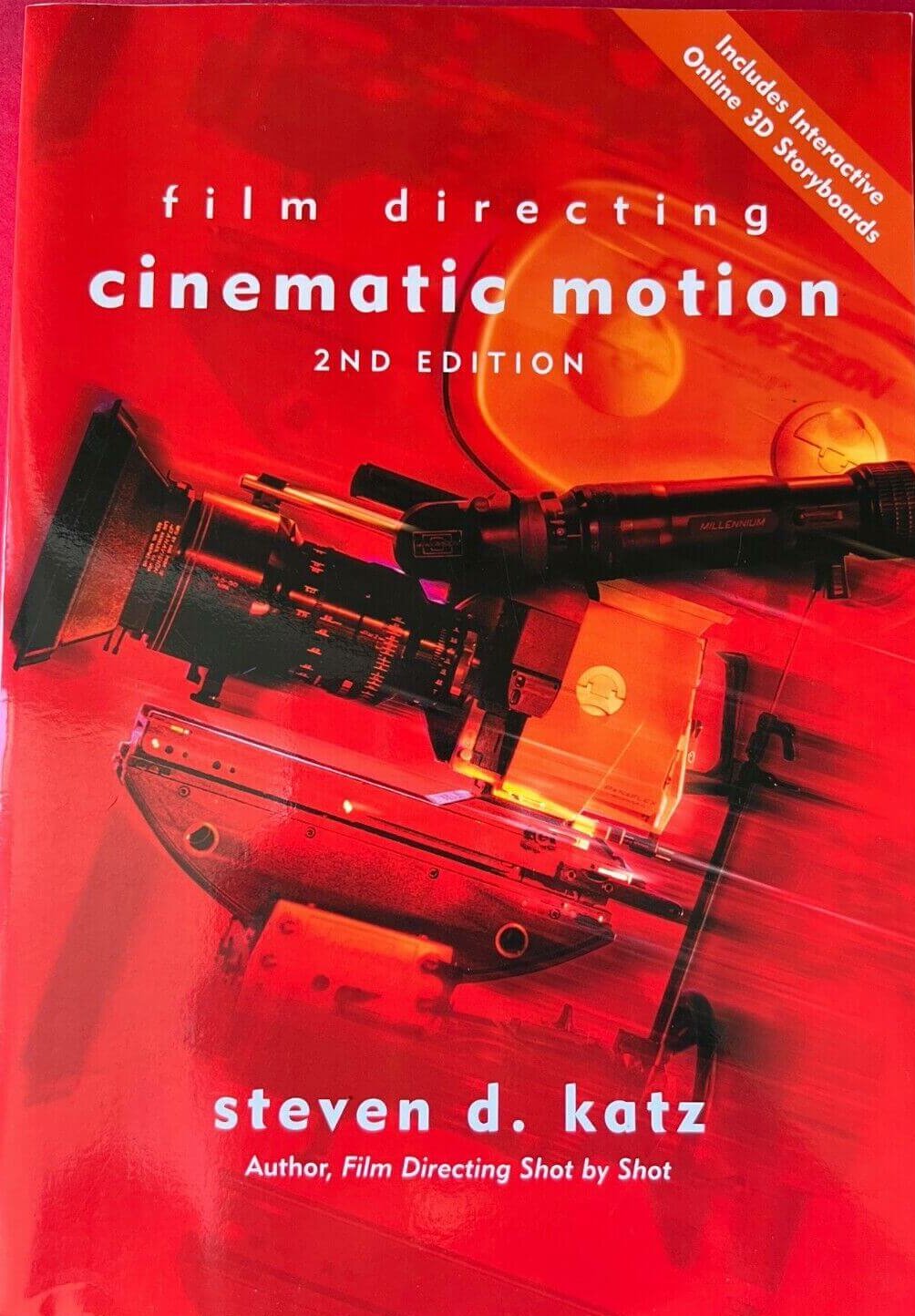
Nestor Almendros
23. “A Man with a Camera”
Nestor Almendros is a legendary DP with films such as Days of Heaven, Kramer vs. Kramer, and Places in the Heart on his resume. His insights and experiences as a cinematographer are priceless. And hearing this artist discuss the work in his own words is nothing short of exhilarating.
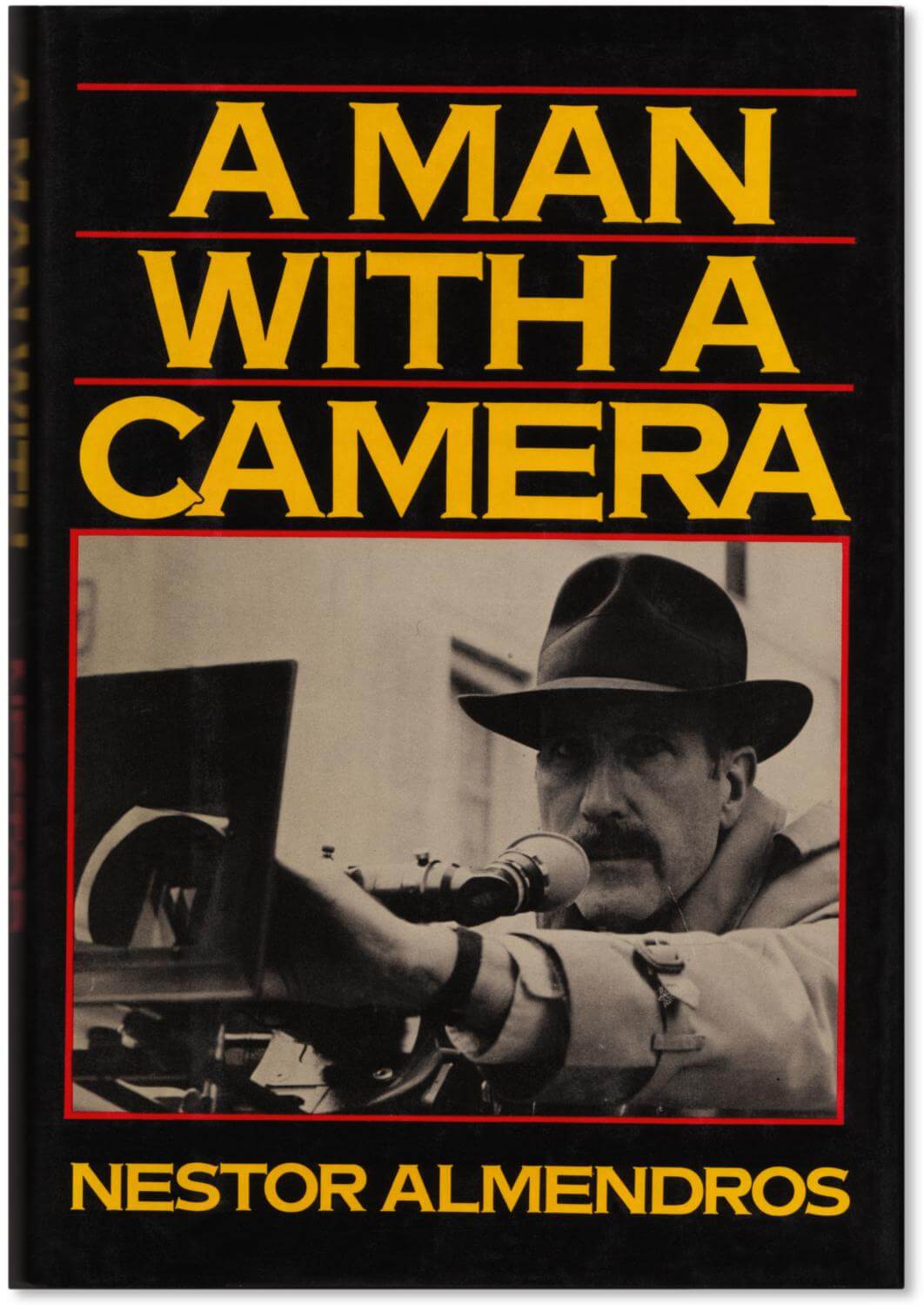
Luciano Tovoli
24. “On Suspiria and Beyond”
Another essential cinematography book taken straight from the mind of icon Luciano Tovoli. "On Suspiria and Beyond: A Conversation with Cinematographer Luciano Tovoli" is basically a long interview but there are gems to be mined here.
As you know, Suspiria is an outlandishly visual film and one of the best horror movies ever made. Even though a majority of the conversation is on this one film, there is certainly no shortage of anecdotes and pearls of wisdom.
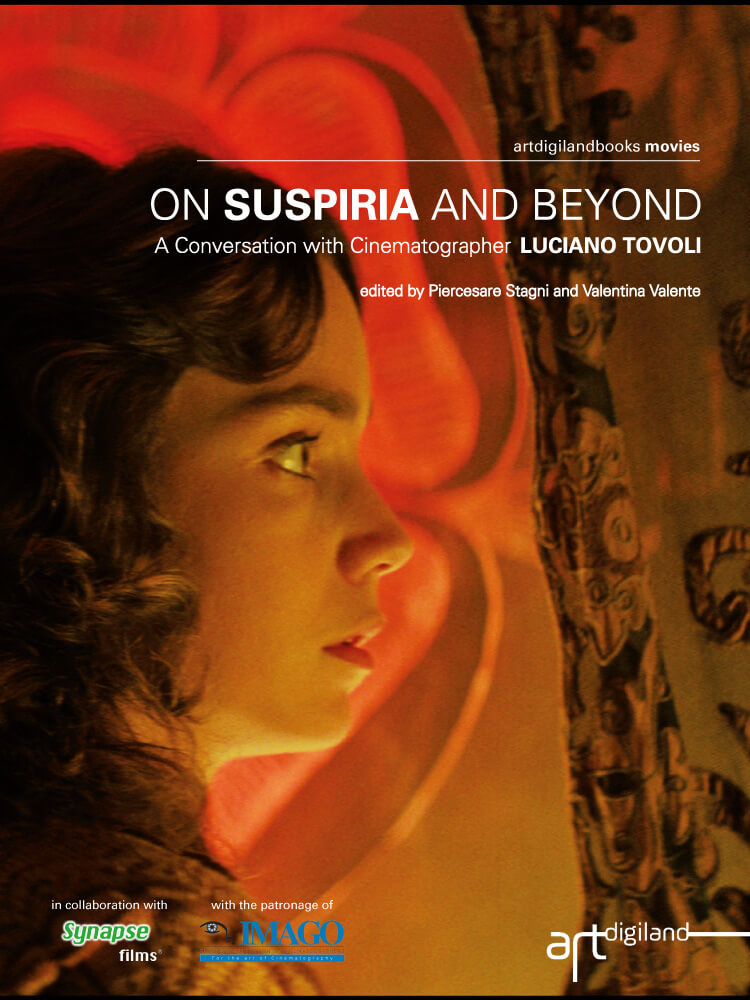
Leonard Maltin
25. “The Art of the Cinematographer”
National treasure and film critic Leonard Maltin walks us through the work of five hall-of-fame DPs — Arthur Miller, Hal Mohr, Hal Rosson, Lucien Ballard, and Conrad Hall. "The Art of the Cinematographer" is an ode to the Golden Age of Hollywood and becomes a fascinating time capsule for DPs working today.
If filmmakers today can be said to be standing on the shoulders of giants, these are the filmmaking giants they're referring to.
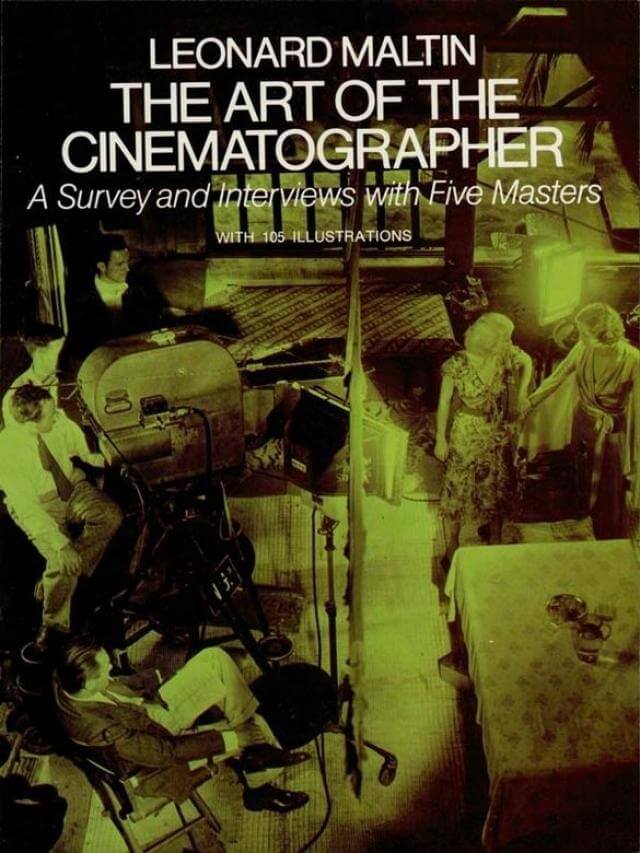
Jennifer Van Sijll
26. “Cinematic Storytelling”
Jennifer Van Sijll's "Cinematic Storytelling" covers the filmmaking gamut. Granted, the best cinematography books focus on cinematography, but books like this one are a reminder that it's just one piece of the puzzle.
Every DP should know how editing works, so that they can anticipate how match cuts or jump cuts can be used. Or how mise-en-scene elements all work together to form a whole picture. That's what cinematography books like Van Sijll's provide — a look at the big picture.
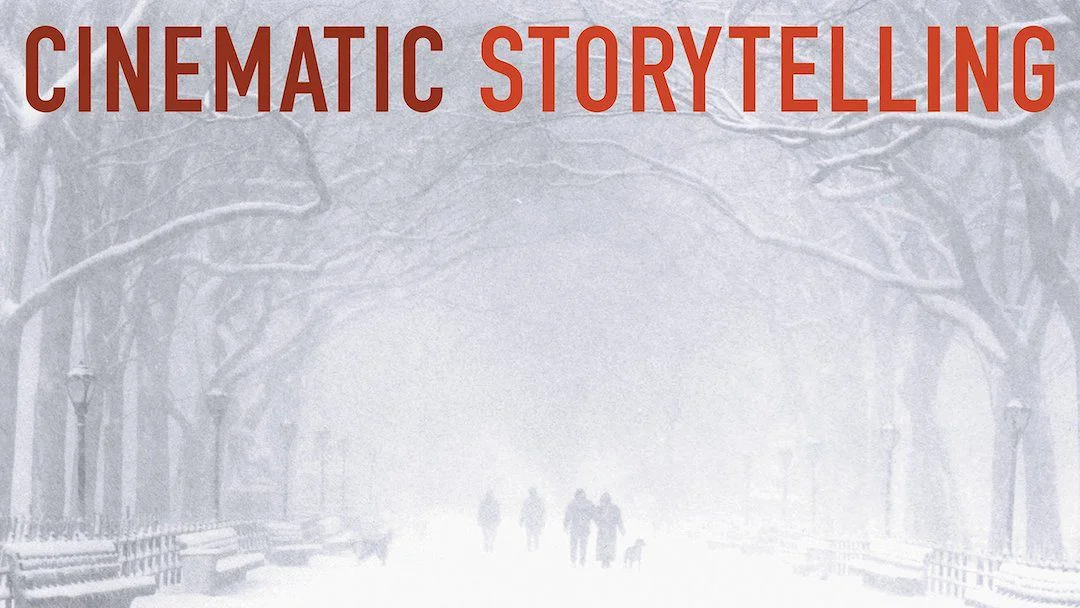
Jay Holben
27. “Behind the Lens”
Jay Holben's "Behind the Lens: Dispatches from the Cinematographic Trenches" is a collection of articles written for various publications, including American Cinematographer. With nearly two decades of material, this is a treasure trove of front line, down-and-dirty insights.
General topics include technical considerations (like RED cameras), optics (like controlling lens flare), camera settings (like ISO), and Post-Production topics (like color grading vs color correction).
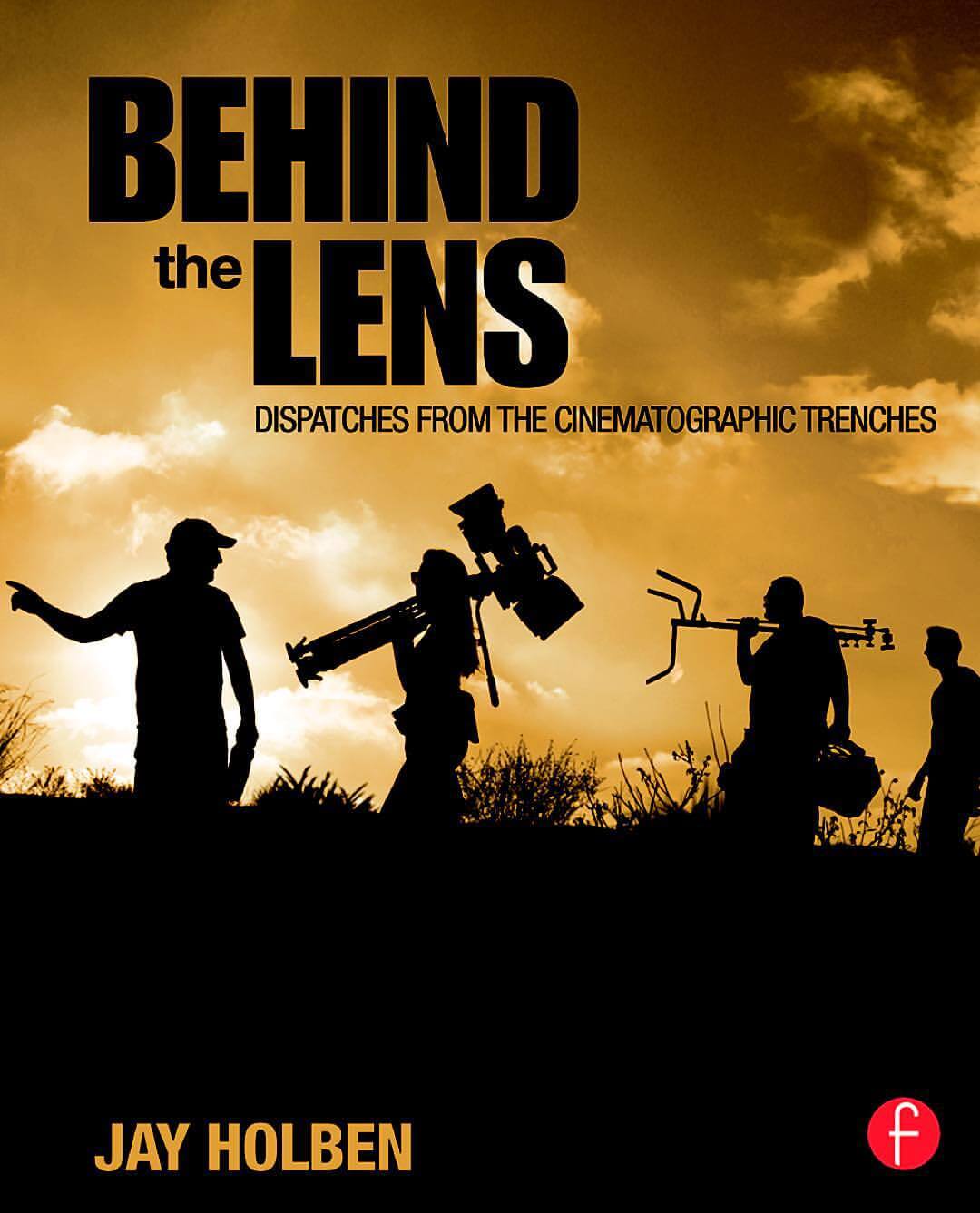
Harry Mathias
28. “The Death & Rebirth of Cinema”
Harry Mathias' "The Death & Rebirth of Cinema: Mastering the Art of Cinematography in the Digital Age" is a must-read. If you're going to read some of the more antiquated cinematography books on this list (and you should), you should also balance it out with this one.
Technology in cinematography is constantly evolving so having resources like this to keep us on the cutting edge are invaluable. Waveforms, compression, codecs, bit rates — all the technical stuff a working DP needs in their vocabulary.
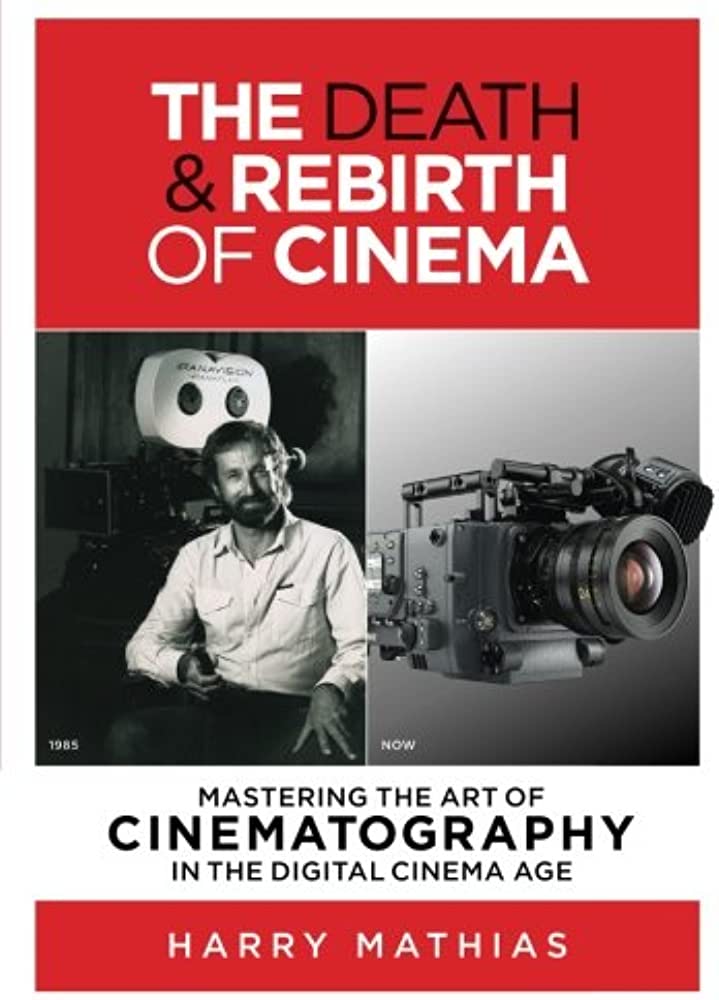
Harry C. Box
29. “Set Lighting Tech's Handbook”
The title of Harry Box's "Set Lighting Technician's Handbook: Film Lighting Equipment, Practice, and Electrical Distribution" says it all. This is some series niche information but one of the best cinematography books nonetheless.
Including the various technical crew positions on a film set, location tech scouting, tips on Rembrandt lighting, and film terminology, this the ultimate resource for anyone aiming for a career in film production.
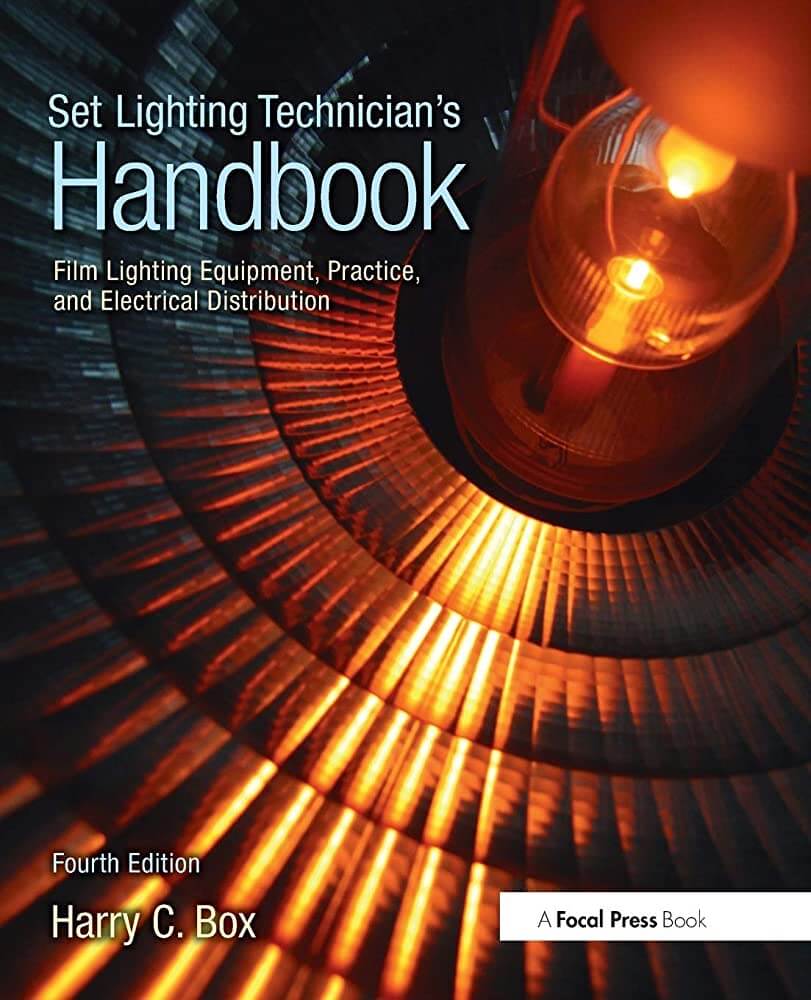
Eran Dinur
30. “Filmmaker's Guide to VFX”
As visual effects and CGI become a day-to-day reality in filmmaking, it's necessary to understand how to work with them in mind. Eran Dinur's "The Filmmaker's Guide to Visual Effects" isn't just for DPs — tips for directors, producers, and editors are also included.
Topics include everything from the basics of how to use a green screen to rotoscope animation and how to break down a VFX scene. The future is now and information like this is essential reading for all filmmakers.
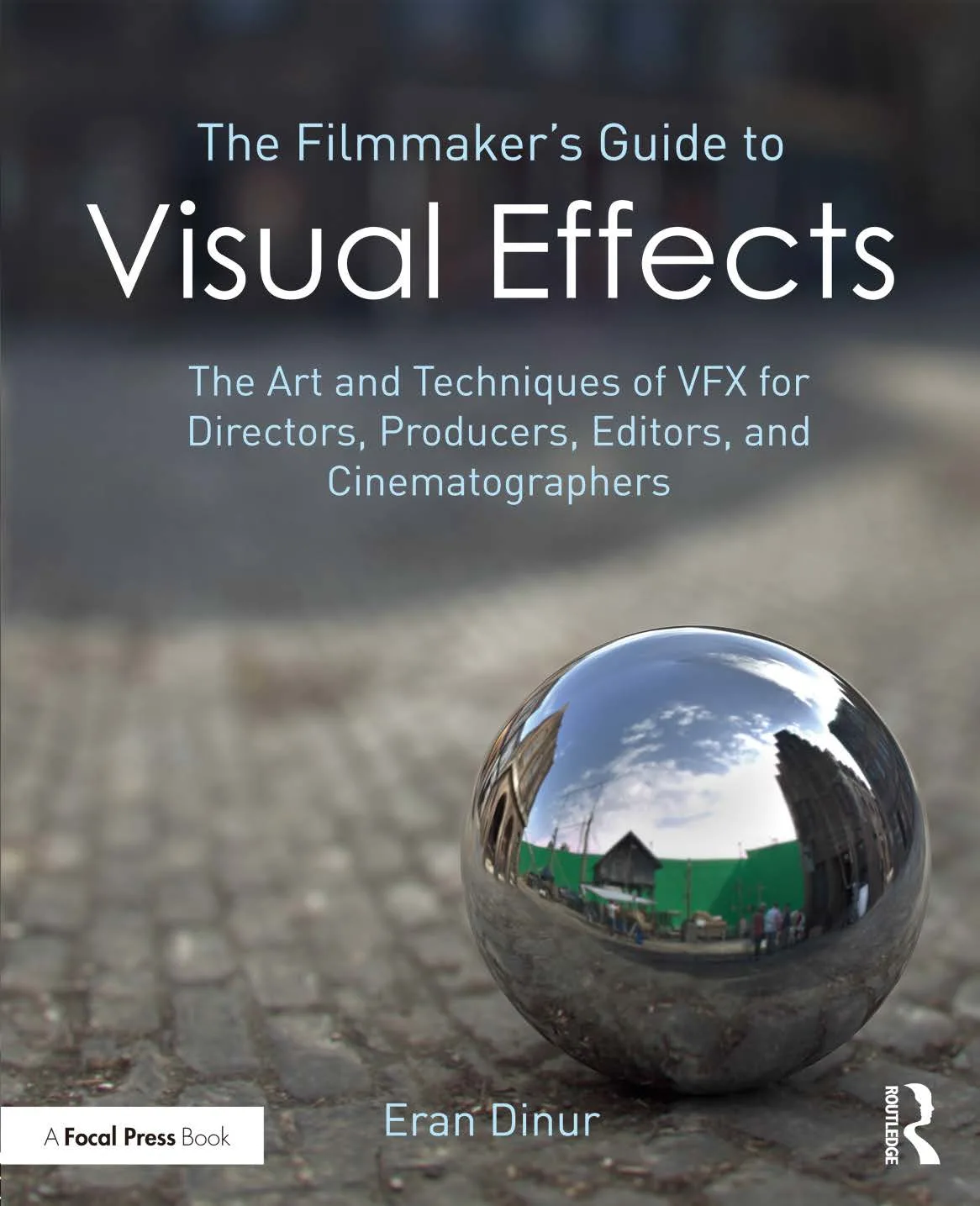
UP NEXT
Cinematography techniques
Since you're interested in cinematography, your next stop should be a deep dive into techniques they didn't teach you in film school. We'll cover everything a DP needs to know from shot listing, and camera tests to location scouting and working efficiently on set.
Don't forget to download our free cinematography techniques cheat sheet. With the right training and experience, you'll be writing your own book on cinematography before you know it.
Up Next: Cinematography techniques →
Showcase your vision with elegant shot lists and storyboards.
Create robust and customizable shot lists. Upload images to make storyboards and slideshows.
